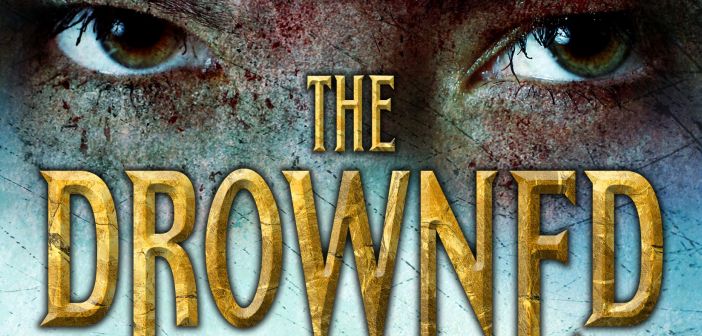The Drowned Cities by Paolo Bacigalupi is set in a harsh, brutal futuristic world in which war is inescapable. Everyone bears scars. Everyone is just trying to survive. Mahlia has survived losing her family, escaping the Drowned Cities, and losing her right hand all in the name of war. She is luckier than some, but she notes it “doesn’t seem so lucky when she needed both hands to get the job done.”
 Mahlia, however, does manage to get the job done. Throughout the book, she is shown to be quite capable in her role as a nurse to the doctor who has taken her in and in the rescue attempt that follows. The narration labels her “crippled” and occasionally uses the word “awkward” to describe how she accomplishes a task, but it never portrays her as helpless because of her lack of a hand. It doesn’t always describe how she does things one-handed, which may be confusing to some readers who can’t imagine doing certain tasks with only one hand, but I didn’t feel like anything Mahlia accomplished single-handedly was improbable for her to do that way. I want to note how much I appreciated the fact that Mahlia doesn’t need help because she has one hand.
Mahlia, however, does manage to get the job done. Throughout the book, she is shown to be quite capable in her role as a nurse to the doctor who has taken her in and in the rescue attempt that follows. The narration labels her “crippled” and occasionally uses the word “awkward” to describe how she accomplishes a task, but it never portrays her as helpless because of her lack of a hand. It doesn’t always describe how she does things one-handed, which may be confusing to some readers who can’t imagine doing certain tasks with only one hand, but I didn’t feel like anything Mahlia accomplished single-handedly was improbable for her to do that way. I want to note how much I appreciated the fact that Mahlia doesn’t need help because she has one hand.
I have been known to say that my biggest disability is other people’s doubt, and I can easily imagine Mahlia agreeing with that sentiment. From the very first scene in which we meet her, she is accused of not being enough. A grieving father tells the doctor: “If your nurse had two hands, it would’ve helped.” This is not the only time in the book that she is faced with doubt about her ability, and it does affect her. I’d be lying if I said that it didn’t affect me sometimes to be so regularly faced with the assumption of not being able. I related to the way that Mahlia struggled with her reaction to the harsh words that people hurled at her because of her limb deficiency—sometimes wanting to prove herself and sometimes wanting to just keep her distance from people who didn’t care to see her for who she was.
Mahlia is a survivor and her story is riveting to the end. If this review was simply about her character, it would be wonderfully enthusiastic, but this book is about more than just Mahlia or any of the other characters to whom readers grow attached during the story. The Drowned Cities is about war and human nature in a larger sense, and, while the book faces some very dark themes throughout, it does offer a sliver of hopefulness in the end.
However, it becomes clear toward the end of the book that Mahlia’s amputation is symbolic of all that war has taken from her. It is, I must admit, hard to read a story in which limb deficiency is equal to tragedy and inextricable from violence when that is far from my own experience as a congenital amputee. While it is true that traumatic limb loss as a result of war does happen for both soldiers and civilians and would, I imagine, feel like a tremendous loss, in the context of this story Mahlia’s amputation felt like it went from being part of her character to being a plot device rather suddenly, which was disappointing.
The Drowned Cities is an impressive work that leaves readers with a lot to think about as regards to war, violence, and human nature. While none of the characters are always likable, including Mahlia, they are what makes this book worth reading despite a disappointing finale.

